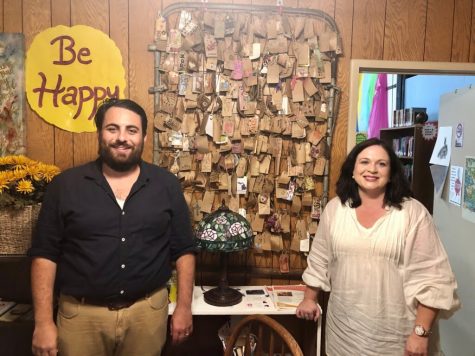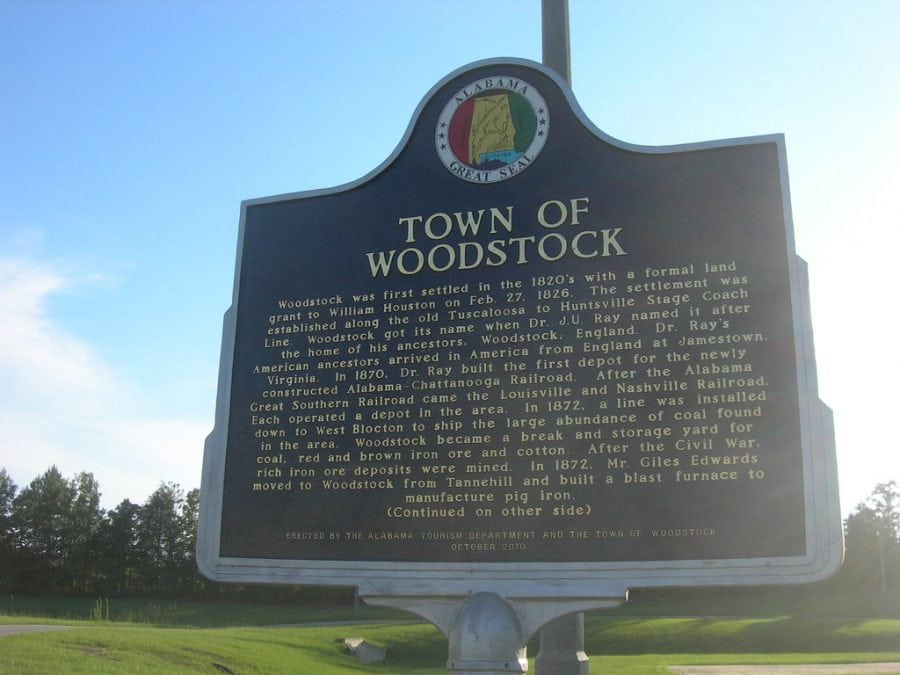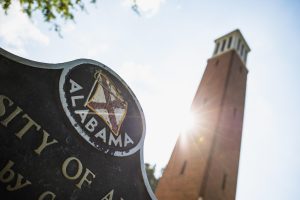Four years later: How ‘S-Town’ impacted an Alabama town
Warning: there are spoilers ahead for the 2017 podcast “S-Town.”
March 28, 2021
On March 28, 2017, the podcast “S-Town” was released and quickly attracted millions of listeners. The podcast was sparked after Woodstock, Alabama, resident John B. McLemore contacted radio journalist Brian Reed to investigate an alleged small-town murder, which he said was being covered up by a wealthy family.
In the third episode, as McLemore became increasingly transparent about himself, listeners learn about his suicide, which becomes the central narrative of “S-Town.”
The residents of the quiet, rural town 30 miles from Tuscaloosa found themselves at the center of national attention after “S-Town” was released. The show was downloaded a record-breaking 40 million times in four days, and it has since been downloaded more than 92 million times, making it one of the most popular podcasts ever produced.
The podcast opened the door for Cheryl Dodson, who attended the University in the early 1990s and was a close friend of McLemore, to dedicate a large portion of her life to bring awareness to mental health and suicide prevention.
“John voiced his pain so well, and I wish he could be here today to see that he was not alone in that pain,” she said.
About S-Town
The first installment of “S-Town” features McLemore, who claimed that a murder was being covered up in Woodstock by a local wealthy family. In this episode, McLemore calls Woodstock a “S–t Town,” giving inspiration to the podcast name and claiming the town as one of the poorest, most destitute areas of Alabama—an area that “just hasn’t advanced,” McLemore says.
For many true-crime listeners, “S-Town” seemed to promise a mystery full of crime and corruption. But despite McLemore’s insistence, Reed, who hosts the podcast, concludes that no murder took place after talking with local police and others familiar with the story.
Not long after this was confirmed, in the middle of the production of the podcast, McLemore died by suicide. Throughout his adult life, McLemore dealt with intermittent bouts of depression, which he occasionally shared with Reed during the podcast.
Upon his death, McLemore becomes the central figure of the narrative, and Reed chronicles parts of his life through the eyes of friends, family and locals, many of whom considered McLemore to be reclusive and eccentric. McLemore lived on 128 acres of land with his mother, Mary Grace, and more than a dozen dogs that he cared for after they were abandoned or neglected.
Mary Grace was featured in the podcast as a central figure after her son’s death. Dodson said people often stop and ask her about Mary Grace. Reed described her as happy, healthy and, at 94 years old, still a little “spunky,” much like John B.
When he wasn’t rescuing animals or creating a hedge-maze in his backyard, McLemore was working with Tyler Goodson, his employee and longtime friend. Goodson worked with McLemore on clock restoration projects and other odd jobs, and said that he and McLemore had a father-son kind of relationship that was often tumultuous.
In the final episode, after speaking to some of McLemore’s former clients, Reed discovered that McLemore was known to fire-gild antique clocks, a gold-plating process that requires the boiling of mercury and is known to produce toxic fumes.
Reed’s interviews reveal that McLemore carried out this process in a poorly ventilated workshop area without protective equipment, leaving listeners to speculate that McLemore could have suffered from mercury poisoning, causing damage to his brain and nervous system.
By the end of the series, listeners learn that McLemore suffered from probable depression and suicidal thoughts, and friends of McLemore say that he had threatened to commit suicide on multiple occasions.

John’s Legacy
Dodson said she didn’t expect “S-Town” to be so resonant and impactful. Its popularity, she said, has helped to amplify a dialogue both locally and nationally about mental health and suicide — issues she said she’s passionate about since McLemore’s passing.
“I want John’s legacy to be suicide prevention, and not for people to focus on just his death, but his life … I want something good to come out of what happened to him,” Dodson said. “There were so many people who listened to the podcast who said they would have liked to have been his friend, to know him.”
Dodson knew McLemore from her time as the Woodstock town clerk, where he would visit frequently. Eventually, the two became close friends who spent time with each other’s families.
Dodson said that early in their friendship, she didn’t know how to handle McLemore’s suicidal thoughts.
“There’s a lot of things I wish I could have done differently to change what happened,” she said. “I knew John had battled depression, and I always thought I had time to act on it. I never dreamed he would have done anything while [his mother] was alive.”
When McLemore died, he was on the phone with the Woodstock town clerk Faye Gamble, to whom he had given a list of people he wanted her to contact after his death.
Gamble, who was at dinner at the time of the call, said she knew John to be extremely intellectual and bright, which probably made him somewhat unrelatable to locals. She said McLemore would call and complain about odd issues, some of which didn’t add up.
“He told me once that he didn’t understand why police vehicles and fire trucks would have their sirens on when they drove up and down his road,” she said. “He said that he felt they were just doing that to just do it.”
Consistent with the stories of other friends and locals, Gamble said that McLemore talked about suicide with her on multiple occasions and recalled a time he had threatened to commit sucide in the parking lot of town hall.
“During those times I begged him and tried to relate to him to tell him to seek help, and that there was someone out there who could help him,” she said. “He would not listen to me, and he just didn’t see that as a route.”
Suicide Prevention
After the podcast was released, Dodson said that letters of grief and gratitude poured in from across the country. To commemorate McLemore and his legacy, the Woodstock Community Library, with Dodson’s help, displayed some of these letters in an exhibit, along with resources for suicide prevention.
Dodson said that when fans of the podcast reached out to her, she would mail them a small brown tag for them to decorate and send back to her. She collected them and created an art exhibit at the library.
Dodson said her advocacy emanated from the podcast. Now, as a board member for the Alabama Suicide Prevention and Resource Coalition (ASPARC), she educates people throughout the state about suicide prevention techniques and strategies.
Since becoming a board member in 2018, Dodson has helped raise thousands of dollars for suicide prevention through annual intitiatives like the Wildflower Walk. Fans send in wildflower seeds, which are then planted in a field across from the garden center that she and McLemore once owned together.
Dodson is also coordinating with this year’s Woodstock Music Festival, which will donate its proceeds from shirt sales directly to ASPARC. The festival, which is in its fourth year, is scheduled to take place on May 8 at the Holiday Raceway in Woodstock.
Her husband, Woodstock Mayor Jeff Dodson said the podcast made the town the “home of suicide prevention” — a legacy he said is important to remember.
When people visit the town, Cheryl said she doesn’t want them to focus solely on McLemore’s death.
“A lot of people come on a pilgrimage to the town, and I ask those people not to end their trip visiting John’s grave,” she said. “I want his legacy to be more than the cemetery where he’s buried.”
Because John’s story resonated with listeners, Cheryl says she still receives messages from people and how they related with John’s story.
“I got a message from one individual who said that she had always been told that grief was just love with nowhere to go,” Cheryl said. “She thanked me for my work and said, ‘You gave us somewhere to put that misplaced love.’”
Correction: The Woodstock Music Festival is in its fourth year, not its 25th. It is celebrating the 25th anniversary of the Town of Woodstock.





















